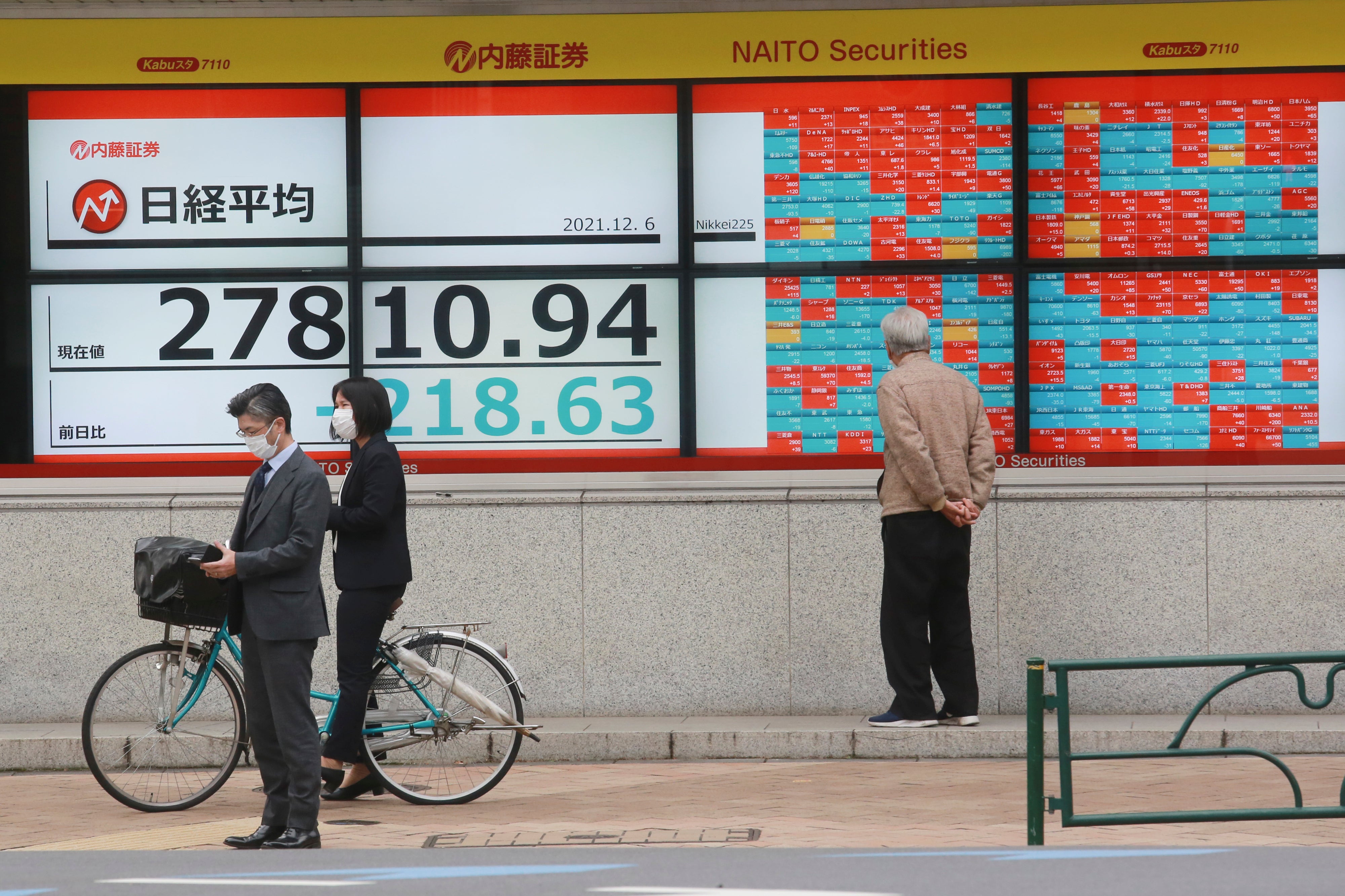Asian shares mixed after China Evergrande warns of cash woes
Shares are mixed in Asia after troubled Chinese property developer Evergrande warned late Friday it may run out of money

Your support helps us to tell the story
From reproductive rights to climate change to Big Tech, The Independent is on the ground when the story is developing. Whether it's investigating the financials of Elon Musk's pro-Trump PAC or producing our latest documentary, 'The A Word', which shines a light on the American women fighting for reproductive rights, we know how important it is to parse out the facts from the messaging.
At such a critical moment in US history, we need reporters on the ground. Your donation allows us to keep sending journalists to speak to both sides of the story.
The Independent is trusted by Americans across the entire political spectrum. And unlike many other quality news outlets, we choose not to lock Americans out of our reporting and analysis with paywalls. We believe quality journalism should be available to everyone, paid for by those who can afford it.
Your support makes all the difference.Shares were mixed in Asia on Monday after troubled Chinese property developer Evergrande warned late Friday it may run out of money.
Hong Kong dropped 1.2% but the Shanghai Composite index rose. South Korea’s benchmark advanced but Tokyo and Sydney declined.
More broadly, investors are struggling with uncertainty about the newest coronavirus variant and about when the Federal Reserve will cut off its support for markets.
Regulators were scrambling to reassure investors after Evergrande, one of China s biggest developers, said it may run out of money to “perform its financial obligations” as it struggles to comply with pressure to reduce its $310 billion in debt.
The worry is that unsustainable levels of debt in the property sector might trigger a financial crisis. China wants to avoid a bailout but also is unlikely to let the situation deteriorate to the point where problems would cascade to that level.
A number of real estate companies have run into trouble as the government has pushed to reduce debt levels, but officials have issued statements saying China’s financial system is strong and default rates are low. Most developers are financially healthy and Beijing will keep lending markets functioning, the most recent statements said.
Evergrande's shares plunged 9.8% early Monday, helping pull the Hang Seng in Hong Kong down to 23,467.42.
Chinese tech giant Alibaba which has been embroiled in a multi-faceted crackdown on the industry, also dragged the benchmark lower, losing 5.4% after the company said it was replacing its chief financial officer, Maggie Wu and overhauling its e-commerce business.
In Tokyo, the Nikkei 225 gave up 0.4% to 27,932.18, and the S&P/ASX 500 in Sydney slipped 0.2% to 7,226.00.
The Shanghai Composite index rose 0.4% to 3,620.92, while the Kospi in Seoul edged 0.1% higher, to 2,972.47.
“This is a week that will force uncomfortable contemplation about ‘known unknowns' mainly associated with omicron, Fed tightening and China (regulatory/property) risks," Mizuho Bank said in a commentary.
That will bring still more uncertainty, it said.
Last week's volatile swings on Wall Street ended Friday with more losses for stocks, as a mixed batch of U.S. job market data triggered another bout of dizzying trading.
The S&P 500 closed 0.8% lower, at 4,538.43. The Dow lost 0.2% to 34,580.08. The Nasdaq sank 1.9% to 15,085.47, while the Russell 2000 slumped 2.1% to 2,159.31.
Friday's jobs report, which is usually the most anticipated economic data by Wall Street each month, showed employers added only 210,000 jobs last month. Economists were expecting much stronger hiring of 530,000, and it raised worries the economy may stagnate while inflation remains high. That's a worse-case scenario called “stagflation” by economists, and the omicron variant's arrival makes its likelihood more uncertain.
Some investors said the jobs report could ultimately push the Fed to get more aggressive about raising short-term interest rates off their record low. Others said they expected the mixed report to have no effect.
What the Fed does matters for stocks because low interest rates have been one of the main reasons the S&P 500 has roughly doubled since the early days of the pandemic. Low rates encourage borrowers to spend more and investors to pay higher prices for stocks.
The Fed already is slowing its program to buy billions of dollars of bonds each month to support the economy and markets.
With few concrete answers about omicron, investors have been sending markets back and forth as minor clues dribble out. It's unclear whether current vaccines are effective against the variant, whether people will be scared away from businesses because of it and whether already high inflation will worsen due to it.
In other trading, U.S. benchmark crude oil advanced $1.46 to $67.72 per barrel in electronic trading on the New York Mercantile Exchange. It shed 24 cents to $66.26 on Friday.
Brent crude, the standard for pricing international oils, picked up $1.43 to $71.31 per barrel.
The U.S. dollar rose to 113.00 Japanese yen from 112.92 yen. The euro weakened to $1.1292 from $1.1309.